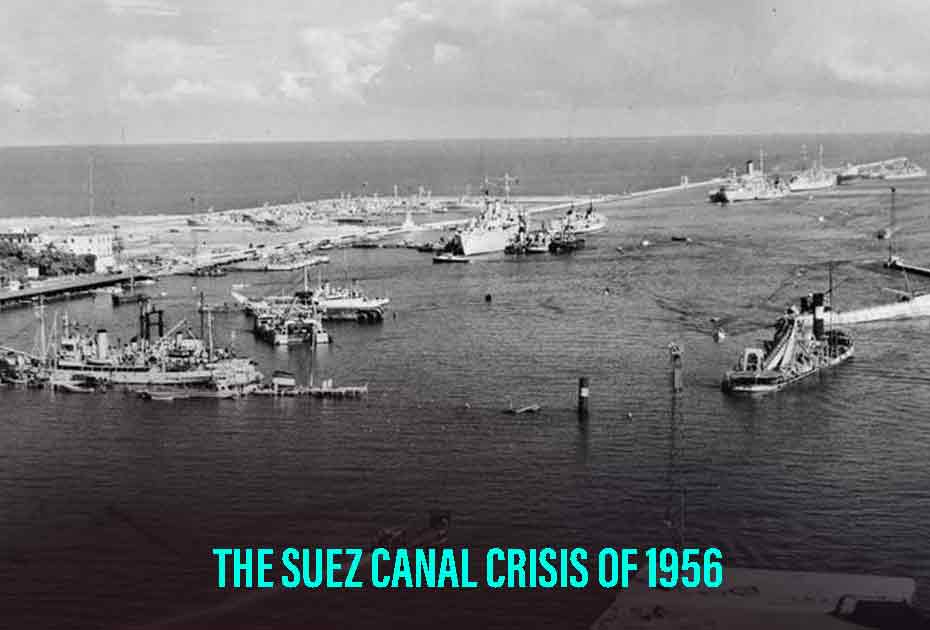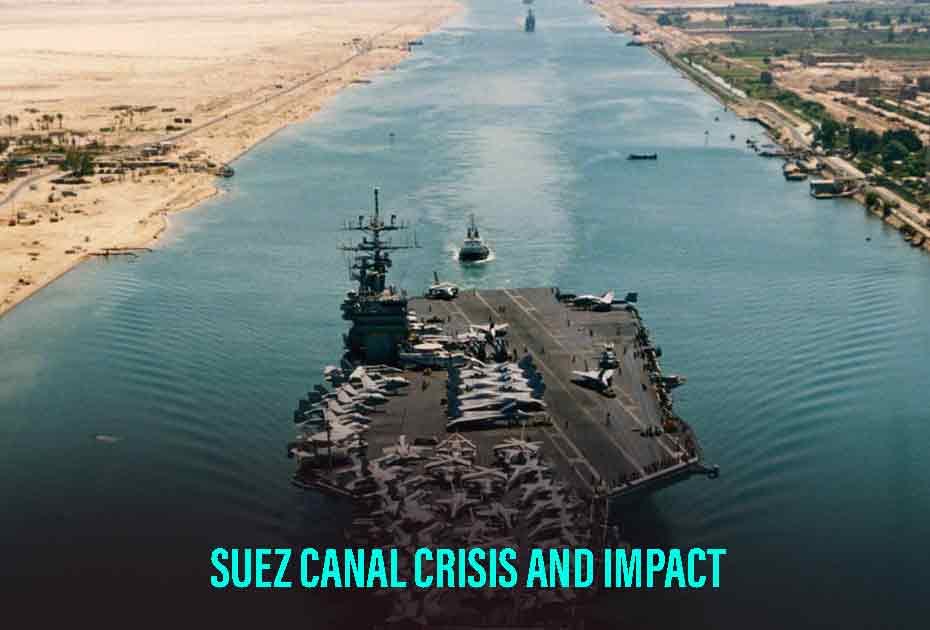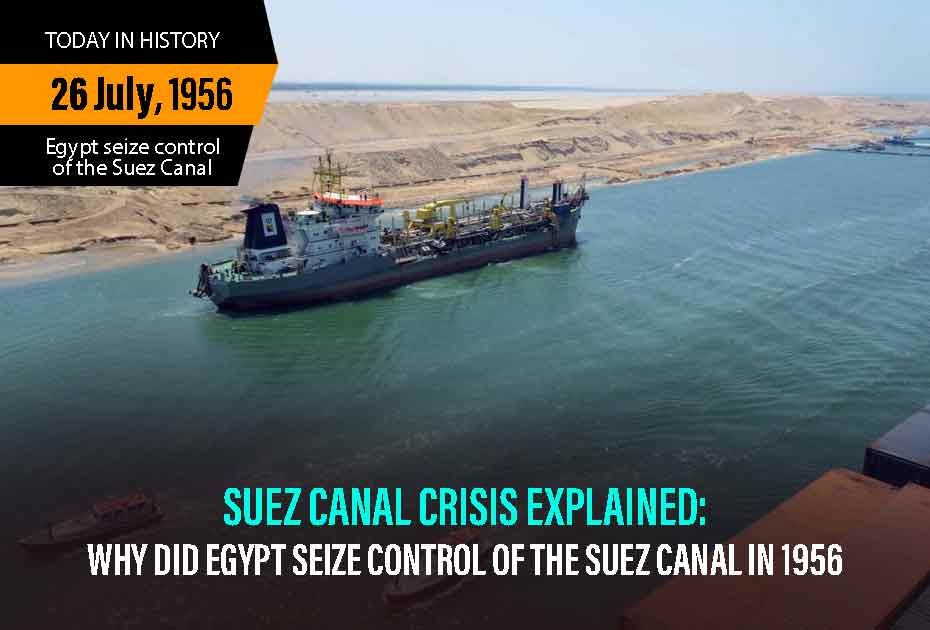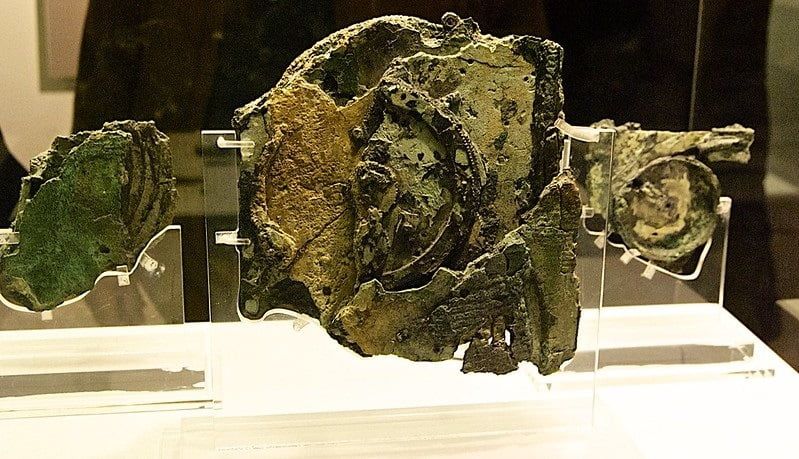Egypt is a country with a long and storied history. It was one of the earliest civilizations on Earth, and its pharaohs ruled an empire that stretched from Egypt to modern-day Ethiopia. The Suez Canal provided an important sea route for a fleet of ships travelling between Europe, Asia, Africa, and America. The Suez Canal crisis of 1956 affected the sea trade to a very high extent. The Suez Canal crisis and its impact majorly affected global trade. Read this article to know what was the Suez canal crisis, what caused the Suez canal crisis and how did the Suez canal crisis end.
What Was The Suez Canal Crisis Of 1956?
Actually, what caused the Suez Canal crisis was the nationalization of the Suez Canal by Nasser of Egypt in 1956 which almost led to war. This is what caused the Suez Canal crisis threatening the interest of other nations including the British, French, America, and even Israeli.

With the threat of sanctions from the US and UN, the retreat of the French, and Israeli troops ended the crisis with a ceasefire. That was how did the Suez canal crisis end.
Suez Canal Crisis History
The Suez Canal, also called the Canal de Suez, is an artificial waterway in Egypt needed to connect the Mediterranean Sea to the Red Sea. It was one of the world’s most important shipping routes, connecting Europe and Asia. The canal was first opened in 1869, and today it is the primary route for ships travelling between the two seas. However, the canal is far from being the only route for ships to travel through the Suez Canal.
It is one of the world’s longest sea canals, stretching approximately 2,300 miles from the city of Suez in Egypt to Port Said in neighbouring Egypt. Being the busiest canal, it carries approximately 65% of the oil trades between Europe and Asia. It has also been used as a military objective and a political pawn in the Middle East for decades. It was originally built by the French in the 19th century but was expanded and modernized by the Egyptians under President Gamal Abdel Nasser in the 1950s.

The canal has been vital to Egypt’s economy and national security ever since. 26th July 1956, Egyptian President, Gamal Abdel Nasser seized control of the Suez Canal and nationalized it, sparking the Suez Canal crisis that later resulted in French, British, and Israeli forces briefly occupying parts of Egypt. This is how the Suez Canal crisis of 1956 started.
Also Read- Who Started WWI And Why: A Brief World War 1 Summary
What Caused The Suez Canal Crisis – Suez Canal Crisis And Impacts
The nationalization of the Suez Canal by President Nasser of Egypt blocked Israeli shipping from travelling via the canal. Britain was already facing a financial crisis due to World War 2 and was forced to exit from the colonies it created. Nasser’s action provoked other nations and led to a path of war.

The crisis caused a huge political derailment and forged an economic crisis, also complicating Britain’s international relations with other nations. The British forces along with French and Israeli troops invaded the areas of Egypt to regain control of the Suez Canal. This was what caused the Suez Canal crisis, which was the most significant event after World War 2.
The Suez Canal crisis and the impact of the crisis on the globe economically were drastic. It almost drained the British economy as Britain was dependent on Middle East countries for oil supply which was blocked by the Egyptian government.
How Did The Suez Canal Crisis End?
The cold war continues between the three nations for the authority over the Suez Canal. The Suez Canal crisis already attracted worldwide attention. The US was afraid that the Egyptians would side with the Soviet Union and surrender all power, making the US less powerful. The war among these nations not only increased the rate of crisis but created problems for other nations too.
Britain, already suffering from an economic crisis, wanted its passage authority back while the Israelis were fighting for their freedom. Being the crucial route for oil shipment, the ongoing war highly affected the oil transport for many countries. To put an end to this crisis, the US and UN finally intervened despite the threat of the Soviet Union being the opposition.
The United States firmly took hostile actions against all the three nations – Britain, France, and Israel, related to economic sanctions to put an end to the war. It was how did the Suez canal crisis end. The forces were forced to retreat including the British and French. Israel finally came up with a treaty with the United Nations in March 1957, giving up control of the canal to Egypt.
Also Read- The Hegemony Of The British Empire – How British Ruled So Many Countries?
Few Final Words
Over the centuries, Egypt has been invaded, ruled, and even bombed into oblivion by superpowers and other great powers. It has been at the center of some of the most important world events, such as the Cuban Missile Crisis, the Paris Peace Accords, and also most famous the Suez Canal Crisis of 1956. Currently, the Egyptian Authorities have claimed the rights of the Suez Canal for the last 99 years.
For more amazing articles, Visit Discover












